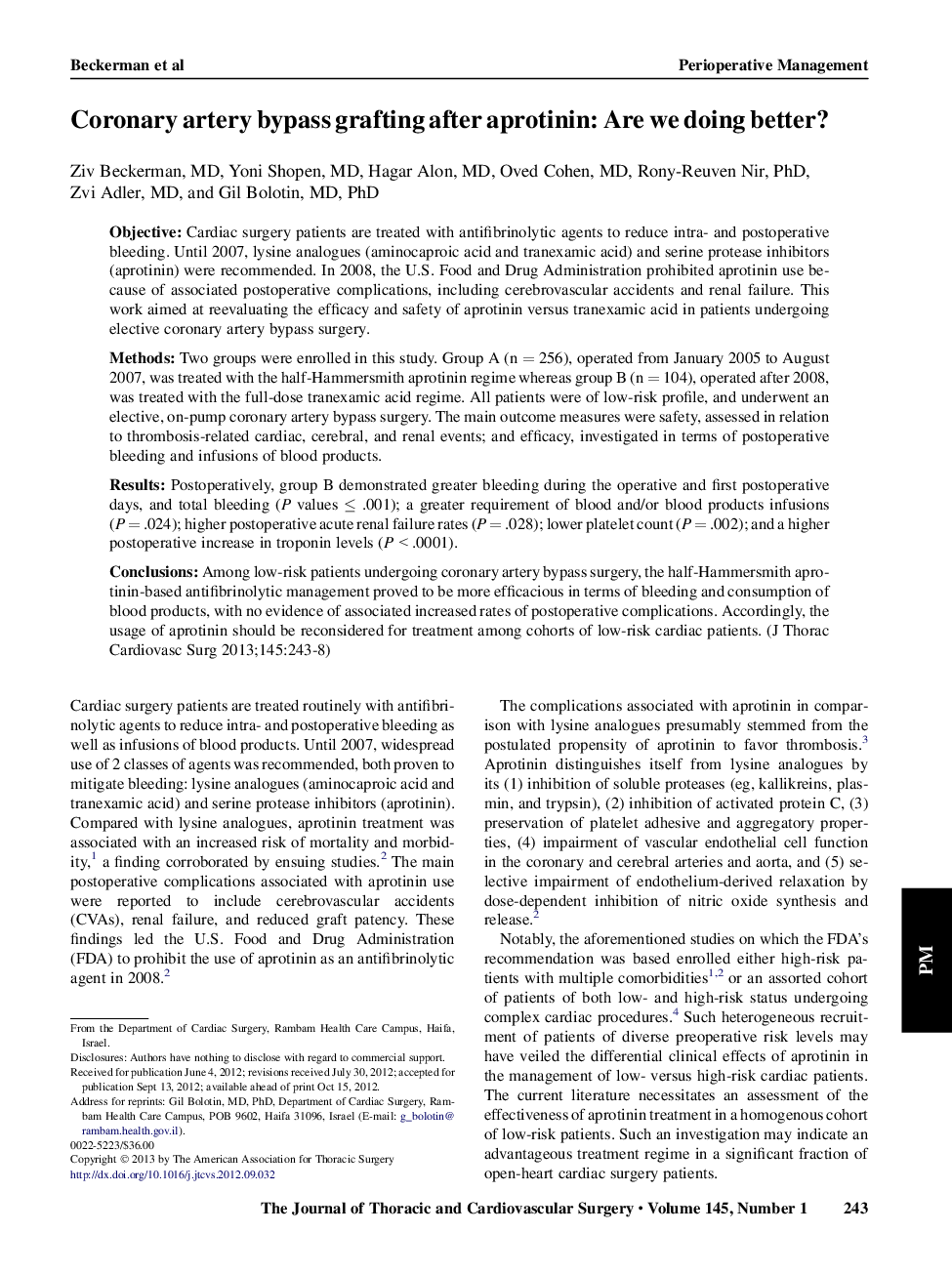| کد مقاله | کد نشریه | سال انتشار | مقاله انگلیسی | نسخه تمام متن |
|---|---|---|---|---|
| 5991382 | 1578628 | 2013 | 6 صفحه PDF | دانلود رایگان |
ObjectiveCardiac surgery patients are treated with antifibrinolytic agents to reduce intra- and postoperative bleeding. Until 2007, lysine analogues (aminocaproic acid and tranexamic acid) and serine protease inhibitors (aprotinin) were recommended. In 2008, the U.S. Food and Drug Administration prohibited aprotinin use because of associated postoperative complications, including cerebrovascular accidents and renal failure. This work aimed at reevaluating the efficacy and safety of aprotinin versus tranexamic acid in patients undergoing elective coronary artery bypass surgery.MethodsTwo groups were enrolled in this study. Group A (n = 256), operated from January 2005 to August 2007, was treated with the half-Hammersmith aprotinin regime whereas group B (n = 104), operated after 2008, was treated with the full-dose tranexamic acid regime. All patients were of low-risk profile, and underwent an elective, on-pump coronary artery bypass surgery. The main outcome measures were safety, assessed in relation to thrombosis-related cardiac, cerebral, and renal events; and efficacy, investigated in terms of postoperative bleeding and infusions of blood products.ResultsPostoperatively, group B demonstrated greater bleeding during the operative and first postoperative days, and total bleeding (P values ⤠.001); a greater requirement of blood and/or blood products infusions (P = .024); higher postoperative acute renal failure rates (P = .028); lower platelet count (P = .002); and a higher postoperative increase in troponin levels (P < .0001).ConclusionsAmong low-risk patients undergoing coronary artery bypass surgery, the half-Hammersmith aprotinin-based antifibrinolytic management proved to be more efficacious in terms of bleeding and consumption of blood products, with no evidence of associated increased rates of postoperative complications. Accordingly, the usage of aprotinin should be reconsidered for treatment among cohorts of low-risk cardiac patients.
Journal: The Journal of Thoracic and Cardiovascular Surgery - Volume 145, Issue 1, January 2013, Pages 243-248
